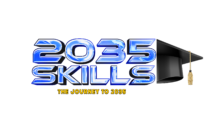Critical Thinking & Problem Solving for Technical & Non-Technical Staff – One Day USD 150 / Two Days USD 250 Per Pax
Description
-
Introduction to Critical Thinking and Problem Solving
-
Understanding critical thinking in the workplace
-
Importance for technical and non-technical roles
-
Common barriers to clear thinking
-
-
The Critical Thinking Mindset
-
Characteristics of effective thinkers
-
Open-mindedness and intellectual humility
-
Overcoming assumptions and biases
-
-
Understanding Problems and Root Causes
-
Defining problems clearly
-
Difference between symptoms and causes
-
Tools for root cause analysis (5 Whys, Fishbone Diagram)
-
-
Analytical Thinking Techniques
-
Logical reasoning and evidence-based decisions
-
Quantitative and qualitative analysis
-
Using data for informed problem-solving
-
-
Creative Problem-Solving Approaches
-
Divergent vs. convergent thinking
-
Brainstorming, mind mapping, and lateral thinking
-
Encouraging innovation in daily tasks
-
-
Decision-Making Models and Frameworks
-
Rational decision-making process
-
SWOT, PESTLE, and cost-benefit analysis
-
Dealing with uncertainty and risk
-
-
Collaborative Problem Solving
-
Working effectively in multidisciplinary teams
-
Group dynamics and conflict resolution
-
Building consensus and shared ownership
-
-
Critical Thinking in Technical Environments
-
Applying structured thinking to engineering and operations
-
Identifying design or process flaws
-
Technical case studies and troubleshooting examples
-
-
Critical Thinking in Non-Technical Roles
-
Decision-making in HR, finance, and administration
-
Process improvement and service quality enhancement
-
Practical office-based problem-solving cases
-
-
Communication for Critical Thinkers
-
Presenting arguments logically
-
Questioning techniques and active listening
-
Communicating solutions effectively to stakeholders
-
Ethics and Emotional Intelligence in Problem Solving
-
Balancing logic with empathy
-
Ethical reasoning and responsible decisions
-
Managing emotions under pressure
-
Case Studies and Practical Exercises
-
Real-world scenarios and simulations
-
Team-based problem-solving challenges
-
Review and feedback for continuous improvement






